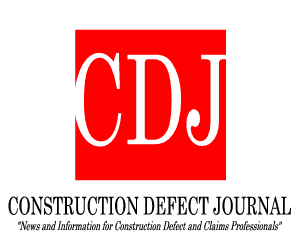
Danielle Ward has concentrated her law practice on defending developer, general contractor, and subcontractor clients in a variety of construction matters.
In July 2019, the California Supreme Court ruled that an attorney’s signature under the often-used phrase “approved as to form and content” does not preclude a finding that the attorney could be bound to the terms of a settlement agreement. (Monster Energy Co. v. Schechter (2019) 7 Cal.5th 781.) This decision marks a reversal of the Fourth District Court of Appeal’s 2018 ruling that approval of a contract is not tantamount to an agreement to be bound by that contract.
The underlying action stemmed out of a wrongful death suit by Wendy Crossland and Richard Fournier, parents of the decedent, against Monster Energy Company. The parties negotiated a settlement, a critical of element of which was a confidentiality provision aimed at keeping the the settlement secret.
The confidentiality provision prohibited plaintiffs and their counsel of record from disclosing both the existence of the settlement, or the terms thereof, to any person, entity, or publication, including the legal website Lawyers & Settlements. The attorneys signed the agreement under the phrase “approved as to form and content.”
Shortly after the settlement agreement was executed, the Plaintiffs’ attorney Bruce Schechter disclosed his clients’ settlement with Monster in an interview with Lawyers & Settlements. Monster filed suit against Mr. Schechter for breach of contract, among other causes of action. Mr. Schechter challenged the lawsuit with a SLAPP motion, essentially arguing that the lawsuit was meritless and merely an attempt to thwart freedom of speech.
The trial court denied Mr. Schechter’s motion as to the breach of contract cause of action finding that the settlement clearly contemplated that the attorneys were subjected to the terms of the agreement, and Schechter’s claim that he was not a party because he merely approved as to form and content was “beyond reason.”
The Fourth District Court of Appeal reversed, concluding that Mr. Schechter was not a party to the agreement by virtue of his signature approving the form and content, and the Plaintiffs had no authority to bind their attorney to the terms of the agreement. The Court of Appeal found that by affixing his signature to the agreement Mr. Schechter was merely manifesting his “professional thumbs up” in line with legal industry’s customary understanding.
In its reversal, the California Supreme Court did not disturb the legal community’s understanding of the phrase “approved as to form and content.” Rather, the Court concluded that an attorney’s signature under that often-used phrase does not preclude as a matter of law that the attorney intended to be bound by the agreement. The entire agreement, including the substantive provisions, need to be examined to determine the attorney’s intent in affixing his/her signature to the agreement.
Turning to the Crossland/Fournier Monster settlement agreement, the Court was unpersuaded by Mr. Schechter’s argument that he was not bound to the agreement because counsel was not included in the definition of “party”. The Court stated that it’s the substance of the agreement that determines whether counsel is a party to the contract, as opposed to a party to the lawsuit.
The Court was persuaded, in part, by the important role that confidentiality plays in brokering settlements. It noted that public disclosure of private settlements would serve to “chill” parties’ ability to resolve matters short of trial, and there was little doubt that confidentiality was an important term of the Crossland/Fournier Monster settlement. In concluding that Monster had met its burden to defeat an anti-SLAPP motion, the Court pointed to the numerous references to counsel in the substantive provisions of the agreement which a trier of fact could conclude bound Mr. Schechter to the confidentiality terms.
Danielle Ward has concentrated her law practice on defending developer, general contractor, and subcontractor clients in a variety of construction matters. She has been an attorney with Balestreri Potocki & Holmes since 2010 and can be reached at dward@bph-law.com.




